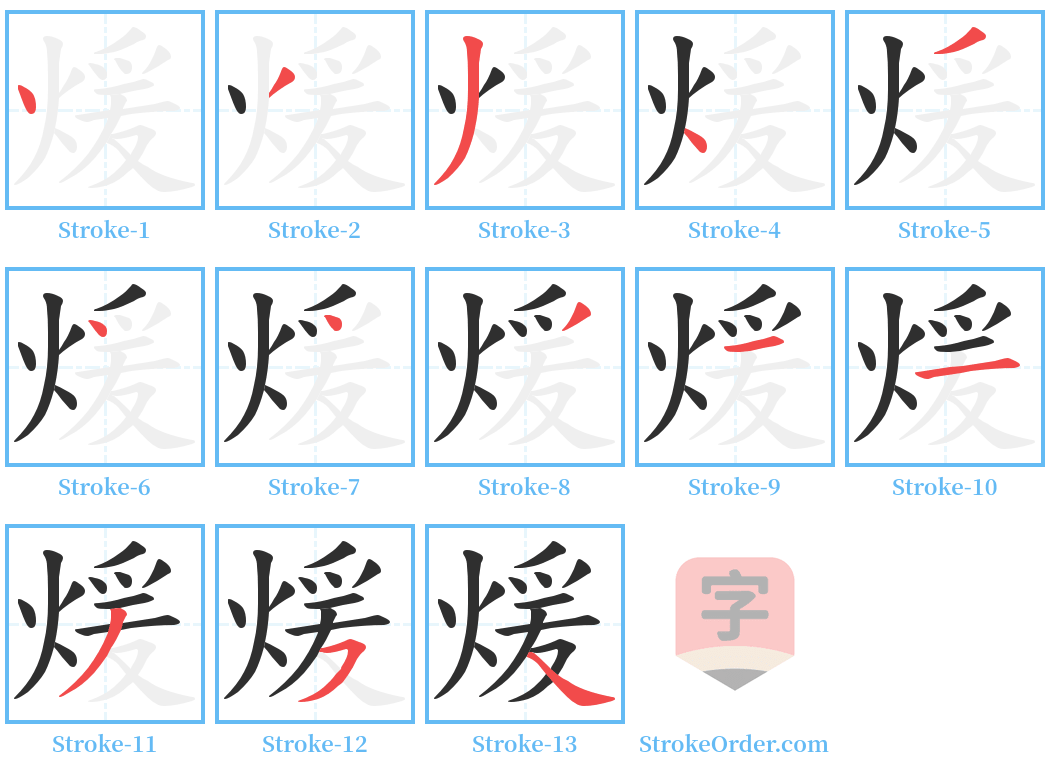煖 Stroke Order
Animated Stroke Order of 煖

Stroke Order Diagrams for 煖

Information of 煖
Pinyin
nuǎn、 xuān
Radical
火
Strokes
13 strokes
Usage
★★
Definition
煖 [xuān]
1. Same as "暖" (nuǎn).
- "煖", meaning warm.
- In "The Analects of Mengzi", it says: "At fifty, without silk one cannot be warmed; at seventy, without meat one cannot be full; without warmth one cannot be full, and this is called 'frozen hunger.'"
2. Fire energy.
- "煖", relating to fire energy.
形 (Form): (Phonetic compound. The left part is from "日" indicating sun, and the right part "爰" (yuán) indicates sound. "煗", is from fire, and "耎" (ruǎn) indicates sound. The original meaning: temperature that is neither cold nor hot.
- The same basic meaning stands, "煖" means warm.
- Also appears as "煗" or "暖".
Examples:
- 暖谷 (warm valley in winter)
- 暖阳阳 (describing pleasant warmth)
- 暖景 (scenery in spring warmth)
- 暖丝 (describing the feeling of warmth)
- 暖煦 (warm)
- 暖意 (the meaning or sentiment of warmth)
- 暖炉 (fireplace for winter heating)
- 暖霁 (clear and warm after the rain)
3. Same as "煊" (xuān).
- Warmth (English: warmth)
引 (Reference):
1. From "Zhuangzi, Dazongshi": "Awe-inspiring in the autumn, warm and lively in the spring."
例 (Example):
- 煖风 (warm wind)
- 煖色 (colors that give a warm feeling)
- 煖耳 (earmuffs)
- 煖房, 煖屋 (a house with a heated floor for warmth)